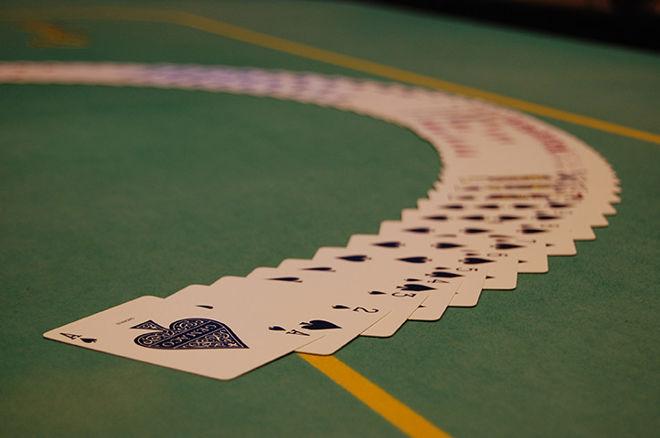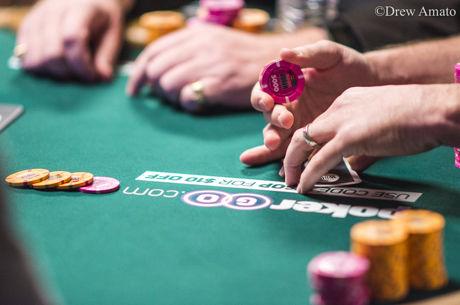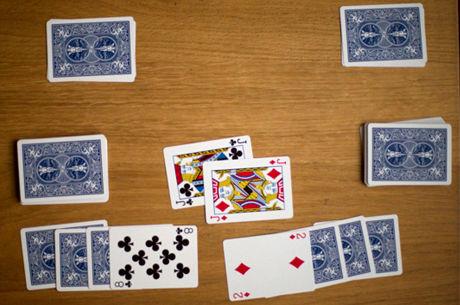Why Play Low Stakes Fixed-Limit Hold'em?

Since stumbling towards retirement nine years ago, Andrei Joseph has played low limit hold 'em in more than 100 poker rooms across 20 states. He would be $37,000 ahead �� if there were no rake! Here's the first of two articles from Joseph in which he explores some of the attractions and challenges of what for many poker players is a favorite variant.
The insults rain down: "How can you play that game?" "It's nothing but bingo!" "You can't push anyone off a hand!" "So many people call, there is always going to be someone who sucks out on you!"
Often offered by no-limit hold'em players, there is an element of truth to some of these claims. But low stakes, fixed-limit hold'em (defined here as $4/$8 and below) is still the game for some of us. Let's see why.
The beginning of my answer is that all forms of poker are different from the other games offered in a casino, in one key respect �� it is possible to win.
Casually, some casino goers will say "let's play blackjack," "let's play craps," or "let's play poker" as though all are the same. However, this apparent similarity is utterly false. In all the other casino games, if you play long enough you are guaranteed to lose.
Poker, on the other hand, if played skillfully against the right opponents, offers the possibility of us actually winning. What a novel thought! What a joy �� I can enter a casino without an automatic sense of doom or need to rationalize that my losses will be the cost of "entertainment."
Those other casino games hold virtually no allure for me now. One might be successful on any given single visit, but repeated efforts at roulette, slots, keno, baccarat, craps or blackjack will inevitably fall victim to the predetermined odds that favor the casino. Playing "perfect" blackjack reduces the house odds to half a percent, but in the long run you will still lose (unless you are a successful card counter �� and good luck with that).
Poker and sports betting are the only games in which skill can overcome cost. Of course, the other side of this coin is that winning at poker requires work. The adage of "a few minutes to learn, a lifetime to master" is true. There is an enormous amount of knowledge to acquire and skill to hone.
Even so, why play limit hold'em rather than no-limit?
First of all, for many of us the idea when playing games like poker is to have fun. And while winning (or losing) money is certainly a central factor affecting how much fun we have, there are other considerations, too.
When I play poker, I want to relax and enjoy myself. I personally can't do that playing no-limit. Others can, but I can't. I am comfortable with a $12 decision. I do not enjoy a game in which I raise preflop with pocket jacks only to be reraised and face an all-in decision.
Don't delude yourself; there is no significant money to be made at low level limit hold'em. Even if you dominate the other players, the rake is simply too big a factor to accumulate stacks that will change your lifestyle.
But the variance is much less than it is in no-limit. Your losses will be relatively low and more controlled. If you have traveled an inconvenient distance to reach a poker room, or you are on vacation, you will still be able to sit for hours and not lose your shirt.
Perhaps this helps explain my perspective: I play poker, but I do not consider myself a poker player. And, at this point, I don't want the tension of a bigger game.
I don't possess the ability to read players in a sophisticated fashion. Nor do I have a serious poker bankroll. But I do want the little buzz, the intellectual challenge, and the social camaraderie poker can provide, both with friends and strangers. I enjoy the comps and the fact that I can shuffle chips with either hand.
Different games fit different personalities. No-limit is a psychology offering with a curriculum reliant on imperfect perception and aggression. Meanwhile, limit poker has been cleverly described as "competitive algebra." Enroll in the course of your choice.









